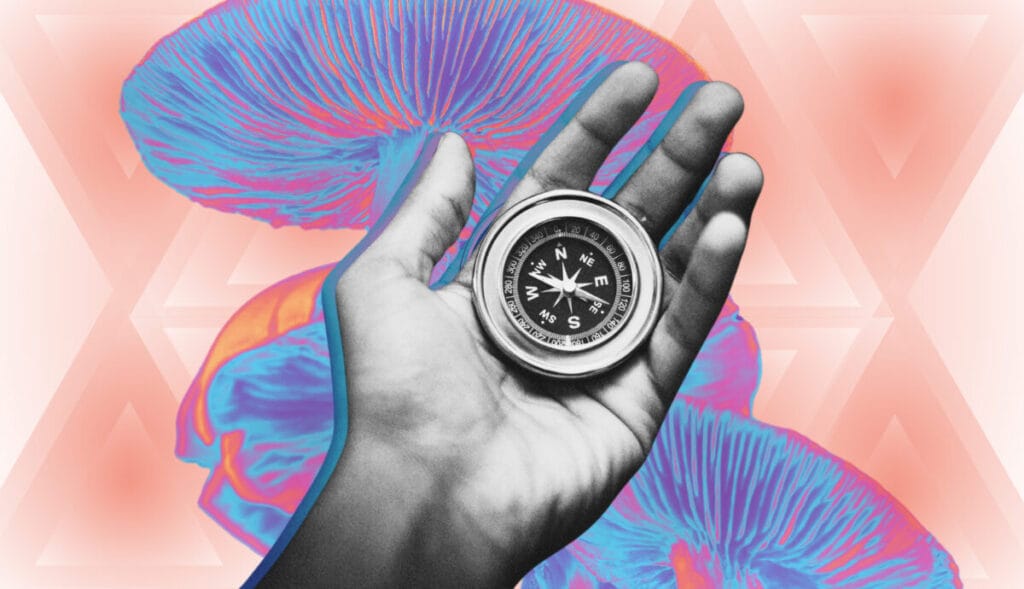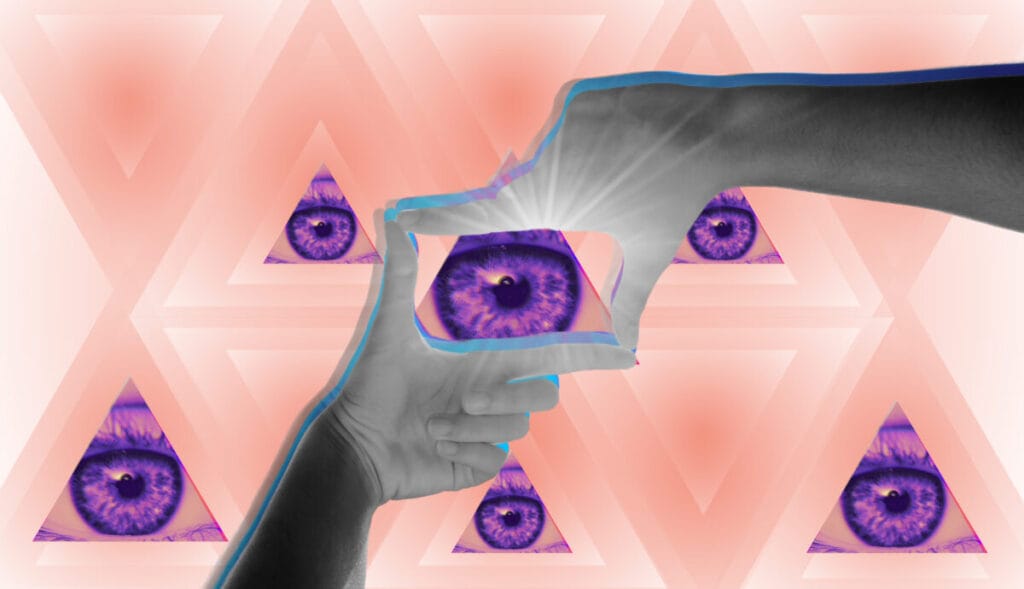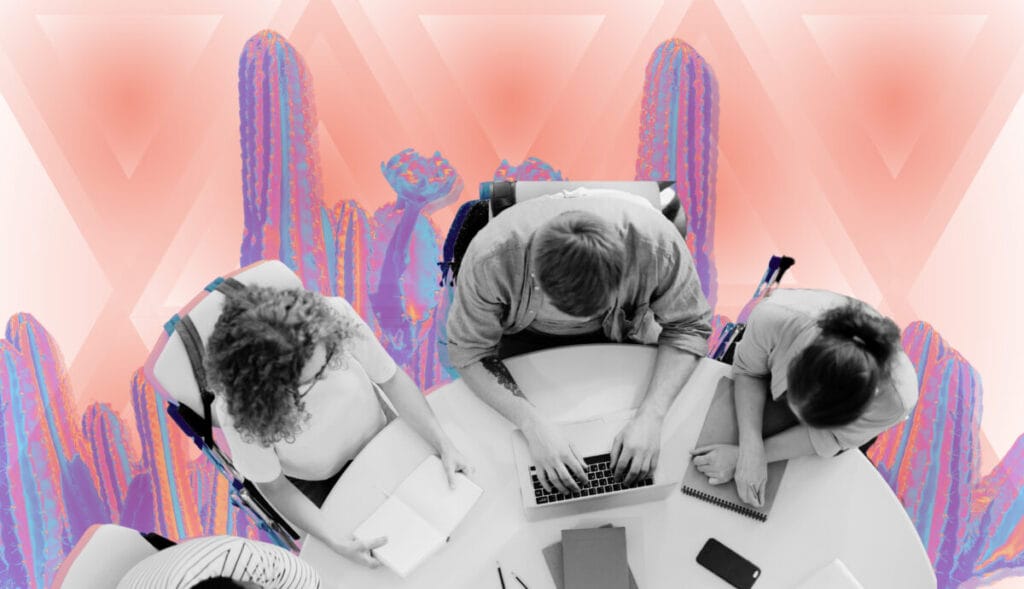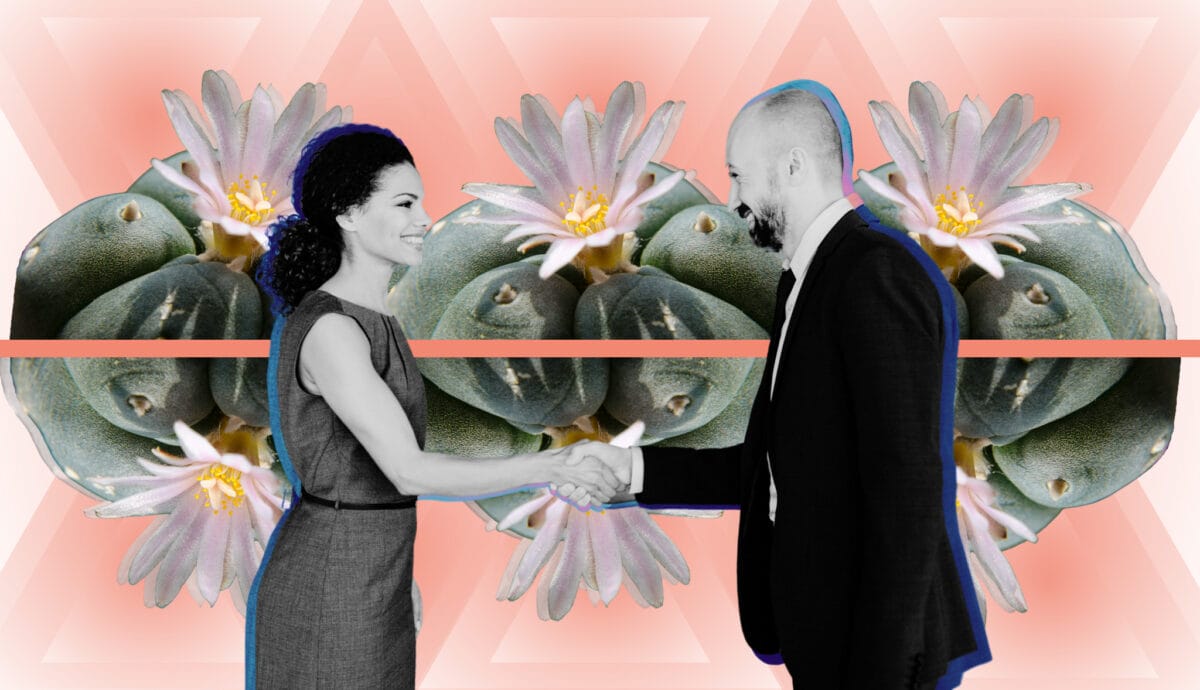Asking for help is an inherently vulnerable thing. But when it comes to becoming a better psychedelic facilitator or guide, it’s crucial. Enter: psychedelic mentorship.
When people seek help from a psychedelic professional, experience matters. One may be dealing with addiction, depression, or trauma. Or perhaps something a bit lighter: a reset, a shift of perspective. Whatever the reason, individuals place their trust not only in the substance, but in the practitioners who help guide the way.
The vulnerability and trust between individuals and their psychedelic support providers highlight the critical importance of experience. This is why professional relationships, such as mentorships, are essential. A skilled mentor can equip facilitators with the expertise to handle the most challenging circumstances, distinguishing them from those who cannot provide the same level of support.

How Mentorship Can Help Psychedelic Professionals
The resurgence of interest in psychedelic medicine has ushered in a new era of therapeutic possibilities, yet despite the exciting prospects of increased access and expanded treatment options, considerations like ethics and client safety must remain paramount. Mentorship can provide the responsible guidance needed to navigate these crucial therapeutic aspects, ensuring that the rapid expansion of psychedelic therapy does not compromise the quality of care.
Psychedelic mentorship and apprenticeships can help build solid foundations, keeping therapists and practitioners focused on the client and the practice.

The Benefits of Mentorship
Psychedelic mentorship offers numerous benefits, both for the mentees and the broader professional psychedelic community. It provides future practitioners, therapists, guides, and integration specialists with critical knowledge, guidance, and support, helping them build confidence and competence in their practice. Experienced mentors share insights gleaned from years of helping others, including best practices, ethical considerations, and the subtleties of client care that are not always covered in formal training programs.
Moreover, mentorship fosters a culture of continuous learning and professional development. It encourages mentees to stay updated on the latest research and developments in psychedelics, promoting an evidence-based approach to supporting clients. This dynamic exchange of knowledge helps advance the field, ensuring that therapeutic practices evolve and stay connected with new scientific discoveries and industry norms.
What Can Future Psychedelic Professionals Learn From Mentorship?
Through mentorship, novice professionals and healers gain hands-on experience under the guidance of seasoned practitioners. This practical exposure is invaluable, as it allows mentees to apply theoretical knowledge in real-world settings, honing their skills in client interaction, session management, and therapeutic intervention.
Mentors also provide future psychedelic professionals with feedback and constructive criticism, helping them identify areas for improvement and develop their therapeutic style. This personalized guidance ensures that new psychedelic practitioners are well-equipped to handle the varied challenges that will inevitably arise during their practice.
For insight on mentorship in the psychedelic medicine space, we spoke with Kylea Taylor, therapist and creator of Inner Ethics program. As an ethics instructor for the Vital Professional Certificate Training in Integrative Psychedelic Studies, she observes first-hand how valuable mentorship is for psychedelic professionals who are training to build their careers and work with clients.
“I think the most important training is experiential. Supervised experience of having many extra-ordinary states of consciousness oneself and sitting for others who are in extra-ordinary states of consciousness,” Taylor said.
“Along with those experiences, it is very important to be in experiential study communities with other peers who share their experiences while you listen and who listen to yours. It is important then to have trainers and trained facilitators who can answer your questions and make comments about what happened in a group session. They can answer the questions of your peers, from which you learn as well.”

The Unique Situation of Psychedelic Therapy
Psychedelic therapy and support occupies a unique and complex niche within the broader field of mental health treatment. There’s a delicate mix of hands-on client care, navigating the legal status of psychedelics, and the specific ethical and professional considerations intrinsic to this type of therapy.
The Vulnerability of Clients
Clients engaging in psychedelic therapy or support often enter highly vulnerable states. The substances used, such as MDMA, psilocybin, and LSD, can induce intense emotional and psychological experiences. These experiences can unearth deep-seated traumas, evoke powerful emotions, and alter perceptions of reality. This heightened vulnerability requires practitioners to be exceptionally skilled in managing emotional crises and providing a safe, supportive environment.
Mentorship plays a critical role in preparing therapists to handle these situations with the utmost sensitivity and care, ensuring that clients feel secure and supported throughout their journey. Mentors can share their experience, help keep mentees focused, and guide them through helping clients navigate challenging experiences.
Recent allegations of practitioner misconduct during psychedelic therapy trials highlight the need for the best possible training, mentorship, and professional accountability.
In her training sessions with burgeoning psychedelic facilitators, Taylor places an emphasis on the importance of ethical considerations and the utmost care for clients.
“[Facilitators have] an up-power position that has a greater power differential than the one between a therapist and a client in talk therapy. The psychedelic medicine amplifies vulnerability, suggestibility, and sensitivity. It softens the client’s defenses. This makes it incumbent on the practitioner, what I call the person who is in the ‘Responsible Party’ role, to have a regular source of oversight for their work—a peer consultation group, a supervisor, or a mentor—where we can be vulnerable ourselves and talk and learn from our challenges to provide impeccable care to clients.”
The Legal Status of Psychedelics
The legal status of psychedelics adds another layer of complexity to psychedelic facilitation. While there is a growing movement towards the decriminalization of psychedelics, they remain illegal in many parts of the world. Even in jurisdictions where psychedelic therapy is permitted under specific conditions, like clinical trials or compassionate use programs, legal restrictions and regulatory requirements can be stringent. Mentors help practitioners navigate this complex legal landscape, ensuring they remain compliant with all relevant laws and regulations. This guidance is essential for protecting both the facilitator and the client, as legal missteps can have severe consequences.
Ethical Considerations & Ensuring Safe Spaces for Clients
The unique and sometimes intense realities of psychedelic therapy demand adherence to rigorous ethical standards. The altered states of consciousness induced by psychedelics can blur boundaries and heighten emotional and psychological sensitivity. Practitioners must be adept at maintaining professional boundaries, managing therapeutic dynamics like transference, and ensuring informed consent. Mentors can help trainees understand and uphold these ethical standards, offering guidance from their lived professional experiences, helping future practitioners prepare for the unique challenges that could arise in psychedelic sessions.
“Practitioners can, without realizing it sometimes, come to believe that the healing and transformation of their clients is their own doing,” says Taylor. “They can misuse a client’s transference and be in denial about their own countertransference. They can exploit a client’s vulnerability or suggestibility sexually, emotionally, financially, medically, or spiritually and rationalize their reasons for doing so. They can ignore their own semi-conscious and unconscious motivations. If they have no peer consultation group or mentor, they may have no one to remind them about their client’s best interests.”

Traditional vs. Peer-to-Peer and Community Mentorship
Mentorship in psychedelics can take various forms, each with its unique benefits. Traditional mentorship involves a one-on-one relationship between an experienced mentor and a less experienced mentee. This approach allows for deep, personalized guidance and the development of a strong, supportive relationship.
In contrast, peer-to-peer and community mentorship involve more collaborative and collective forms of support. Peer-to-peer mentorship connects individuals at similar stages in their careers, enabling them to share experiences, challenges, and solutions on an equal footing. Community mentorship, on the other hand, involves larger networks of practitioners who provide mutual support, share resources, and collectively advance the field.
These forms of mentorship can complement traditional mentorship, providing a well-rounded support system for professionals at all stages of their careers. Taylor sees benefits in a well-rounded approach.
“I think having both forms of oversight is ideal. Traditional mentorship is usually one-on-one or in small groups. One can benefit from a mentor’s greater expertise. A one-on-one supervisory session can usually provide more security of confidentiality about a client situation,” Taylor said. “Peer consultation groups can provide more points of view, a breadth of resources and greater reach in networking. Our InnerEthics Peer Consultation Group is structured to protect vulnerability as practitioners rotate in roles to help each other do self-inquiry and relational reflection. Together they do mutual consciousness development to help them do their consequential work. Members of these groups also benefit from two things that are hard to come by in modern culture: a feeling of belonging and greater self-compassion.”
Considering the unique dynamics of psychedelic therapy, and how the future rollout will be full of new participants and novel therapeutic models, mentorship is quickly becoming a cornerstone of professional development. This supportive mode of training will help equip professionals with the knowledge, skills, and ethical grounding necessary to ensure they’re well-prepared to meet the challenges and opportunities of this new era of mental health.


